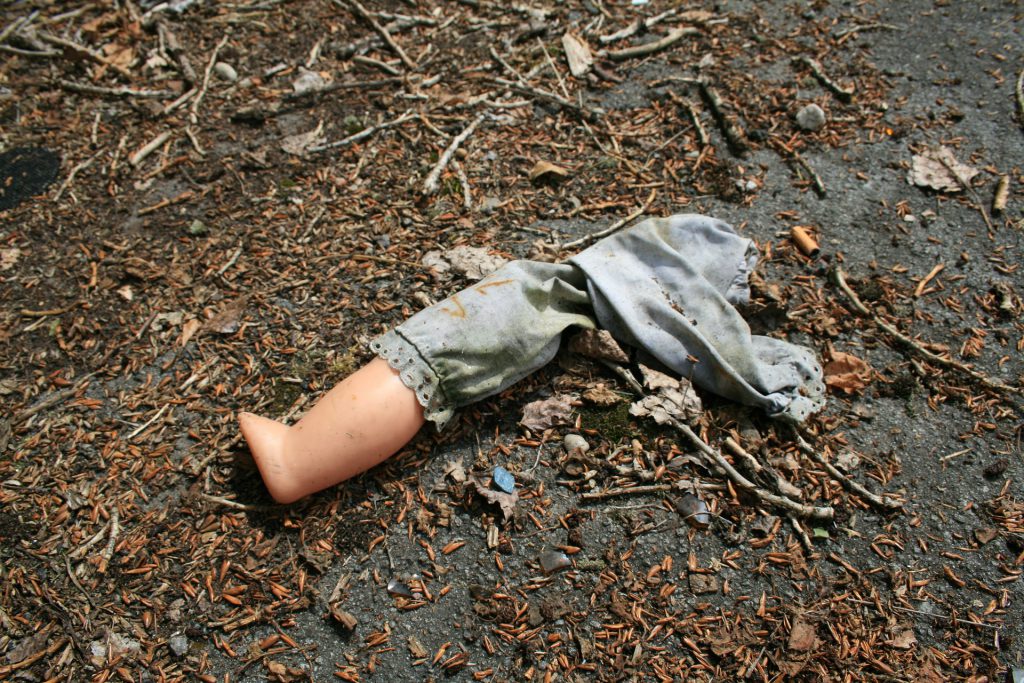Lately I am busy with rather stressed parents who often fear the traumatisation of their children. This is not surprising, as school in many countries has begun again. Generations of children and parents will be yet again exposed to new potential trauma – and of course not only at school. Traumatic situations are simply part of life.
Traumatic experiences are lurking everywhere
The opportunity for trauma in childhood and youth are manifold and ubiquitous: pain of being separated from the family, fear of the unknown, mobbing, discrimination, harassment, performance anxiety, sports anxiety, food anxiety, over extension, under extension etc. etc.
Not every traumatic situation leads to trauma in every mind – but it can. Who is affected when and how you you never know in advance. But most parents would love to absolutely prevent it.
Personal trauma clouds the view
Primarily because it often reminds parents of their own traumatic experiences. Especially if the aftermath dims their joy in life to this day. Sometimes they are aware of it, sometimes not. However many parents are not at ease with their own youth, with their school years and teachers in position of power. No matter how far away it may seem.
A friend of mine who is a principal at a German elementary school told me recently how she had invited a father for a parent-teacher conference. During the conference he was uneasily shifting around in his chair and avoided her gaze just like his seven year old son. Otherwise Dad is running the local hospital and it is hardly imaginable he has any issues with authority.
Some traumas are passed on
School is often a key issue when parents come to me for a session. It´s often about exam anxiety, incomprehensible fear of achievement – that the kids develop without any pressure from their parents. Sometimes they worry if their children have “good” or “bad” friends or are influenced otherwise and whether it´s the right school altogether.
With only a little prompting you then learn that the worried Mom or the disquieted Dad (and sometimes both) also suffered in school. Of course they´re afraid their children may experience similar things. And sometimes they pass their fears on to them – without being aware of it and rather directly. That´s one way in which family belief systems are established like “only both are good at math” or “sports at school sucks”.
If you are really not at peace yet with your unfortunate memories of school then it is even harder to convey a courageous relationship to math or sports to children.
Powerlessness and helplessness in the face of trauma are rampant
Particularly if ADHS or autism are diagnosed most parents feel completely overwhelmed. They just wanted a ‘normal’ child and be ‘normal’ parents. But to be honest, ‘normal’ is in artificial concept. In my experience it simply doesn´t exist. However, there is a lot of uniqueness, whom all of us can do justice – if we want.
So when ones child has trouble in school or in society in general must parents experience an emotional crash. They´re afraid of having failed completely, having made a mistake and are perhaps utterly unfit to raise a kid. The brutal realization that it is apparently not enough to love a child is painful and the question what it needs beyond loving care is overwhelming. Shame, fear, powerlessness and helplessness then rule over trust, courage and the willingness to ask for help and accept it. In this way a trauma of the child can become a trauma for the parents too. And the search for the cause of the trauma is important but even more important is to find a good way to deal with it for all involved.
The roots of a trauma can be diverse
Sometimes it´s not the copied fears or unresolved trauma of the parents that are at the root of a trauma, or not exclusively. Often dynamics from other generations or even other lives can play a role. Only because a child is small it doesn´t mean it is not subject to a complex soul plan and course of life. The challenges can start early. Sometimes already with a difficult birth or a problematic life situation of the parents.
Just like the family and life situation we´re born into, school too, is a favoured “training camp” for character building and development in consciousness. And that applies to all schools no matter how progressive they are in meeting their task. There are some fabulous examples in our day and age where certain schools truly serve the children and their potential. Rather than forcing them to become servants of society – and thereby losing their potential – which of course it quite traumatic. However that is still the current paradigm.
Prevention of trauma is not the solution
Even if we wanted, we couldn´t prevent trauma. It´s been part of our life for eons. And it is absolutely common in our culture that traumatised people raise children and unwittingly pass their own trauma on. The fear of teachers and authority, of failure, of discrimination – because you´re simply different or can´t or don’t want to participate…These and other fears are part of our current life on earth. If you don´t want to experience them you had better incarnated as a block of concrete or on a planet where every thing is predictable, manageable and simple.
It is only logical that with our love for suspense in entertainment we also choose lives that are full of suspense. The heroes on the screens actually often experience far more worse things than we do. But they mostly emerge stronger, wiser and more sovereign. That is also possible in our lives. It has something to do with our attitude towards our self and life. If we honour our selves as the heroes we actually are, life finally becomes the adventure that so many of us are yearning for and we become ever stronger, wiser and more sovereign!
Considering this the prevention of traumatic situations is counterproductive.
Challenges are necessary for life
I once read the following story about the famous American psychic Edgar Cayce. (I haven´t found the original source again). One day grieving parents came to him. They were full of remorse towards him for when their son had been a baby, Cayce had prophesied a magnificent future for him. But at age 18 he was killed in a car accident. However they had done everything to protect from dangers and removed all kinds of obstacles from his life in time. With a heavy heart Cayce replied that in doing that they also had removed the preconditions for the unfolding of his potential. Now his soul had been lacking the necessary challenges and chances for growth and had decided on leaving this life early.
Life get´s it right
If there really happens to be a well meaning father or mother now who believe that the reverse also applies and that they now have to provide their children with ample trauma in order to grow proficiently – they be told: it is not your job! Raising children is done in partnership with life and this particular aspect is taken care of by life itself, the universe or god or whatever metaphysical agency you trust. It is always aware of the soul plan and potential of your child and orchestrates its life accordingly – if we let it. Very few humans have that kind of overview and intelligence – and fortunately we don´t need to. Trust, humbleness and the willingness to surrender the child´s fate to it´s higher purpose is absolutely sufficient. It also is much more fun for you and your children than nurturing fears or a need of control.
And as long as we as a species how to grow without shocks, pain and suffering, trauma and overcoming them will always be important for our development in consciousness.
We have to learn to handle trauma wisely
But what parents and teachers and other caretakers to whom the wellbeing of a child is a matter of the heart can do, is to help the child coping with the traumatic situations – as well as you can. So far only very few of us have learned how to do this. Usually we stress each other with our traumas rather than helping each other overcoming them. But there is another way.
People can connect and help the child joining forces. There are intelligent school pedagogues, psychologists and who seek out a path together with the parents and the child to handle a challenging situation. That offers an opportunity of growth for all involved – not only for the child.
Children often understand psychological dynamics better than we guess
Nowadays – at least that is my observation – many children happen to have a psychological understanding or awareness that often surprises their parents and teachers. If we manage to speak with them about that in an adequate way, they understand a lot are often able to apply this in an intelligent way. Most children don´t actually want the problem to be solved for them. They want to be actively involved for only that leads to the desired empowerment and autonomy.
Trauma can be resolved
There is also always the possibility to completely resolve a trauma. Sometimes it can be resolved in an intimate conversation among friends and family. For others external help is required. Modern Psychology offers various kinds of trauma therapy. Many osteopaths and other, accordingly trained, body workers know how to undo physical trauma. Also hypnotherapists or shamans can be the right person to go to. And finally there is a plethora of great books, talks and films that can bring light to your own darkness and help to better understand what the painful trauma actually consists of.
It is also important to remember that you are a human being worthy of love and always will be, even though you might have experienced trauma and currently feel alien in your body and your life. I would describe it as a shock freezing of the feelings in the moment of the traumatic experience and it requires selflove, patience and loving attention from another to melt the ice and gently process it.
Accepting the reality of the experienced trauma is essential
A fundamental aspect is the permission to talk about it. To recount the experience in detail – often several times. If the other listens openly, without judgement and without even trying to sugarcoat, to ameliorate or change it – then a lot is won. For the most important thing is the acknowledgment of the experience honouring the feelings that arose and name them. That sometimes requires several rounds. In my experience that is the first step towards letting go and shifting the experience.
The shifting then often is initiated by the traumatized person. That is far more effective and sustainable than when a person from outside tries to offer alternate paths to solution. This is often perceived as a reinforcement of the trauma – for the experience and the feelings that came with it are yet again denied.
In truth we all know everything we need
It is my experience indeed that none of us has problems s/he cannot actually solve him or herself. In other words the answer to all questions resides within us. Also which path of healing is the best for us we actually can answer best for ourselves. But finding these answers is often impossible, due to possible personal resistance, or a certain numbness towards yourself (sometimes due to trauma…), great doubts or simply lack of experience. Then it is very wise to seek help to be able to hear your inner voice yourself once again.
Sometimes we´re even grateful for the trauma
When this contact to your own core is re-established, the personal path out of the trauma usually emerges. It can sometimes be very different from what a book or an advisor says. But following your own impulses also strengthens your trust in yourself and in life. Without this experience you may never have made an effort to reconnect with your soul. And maybe that connection was already missing before the trauma occurred. But once we´ve regained it, you don´t want to miss it. For it can catalyse new joy in life and creativity.
Furthermore there is nothing that prompts our growth more than mastering a seeming insurmountable challenge. Often it is exactly that that then inspires or motivates others to deal with their own challenges. A happy end is always possible – even though the path may not always be easy and needs time.



